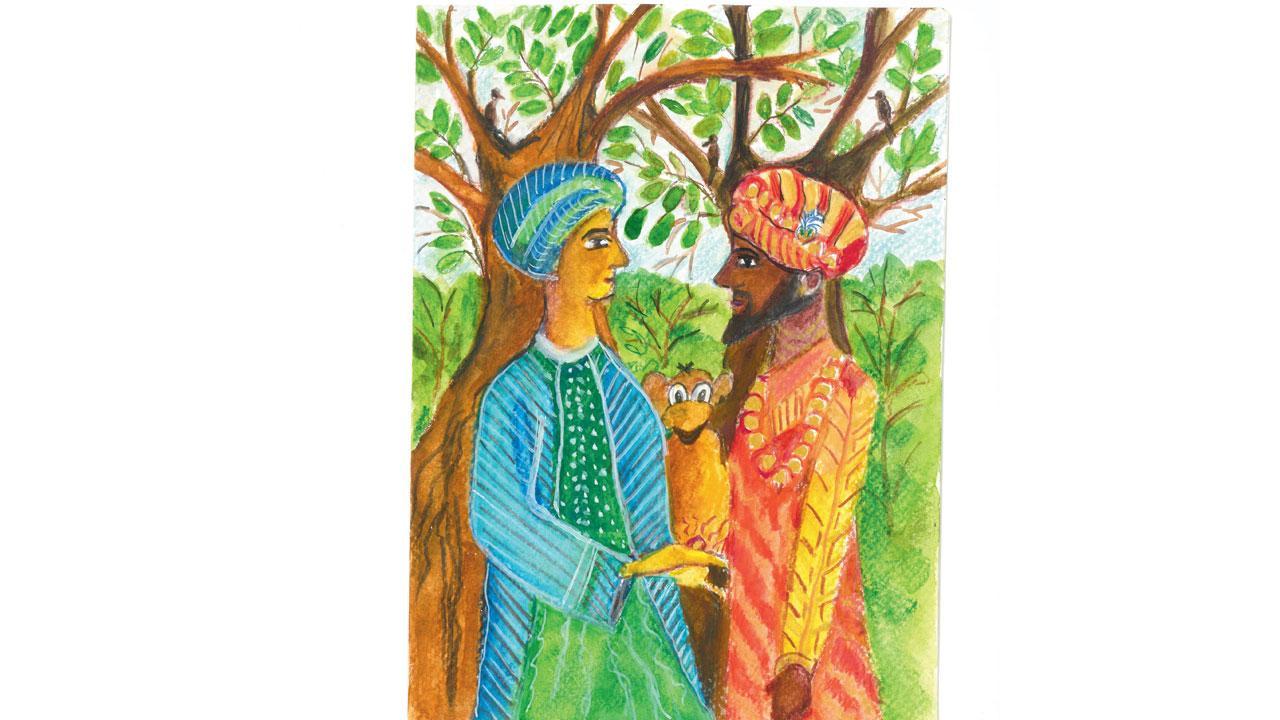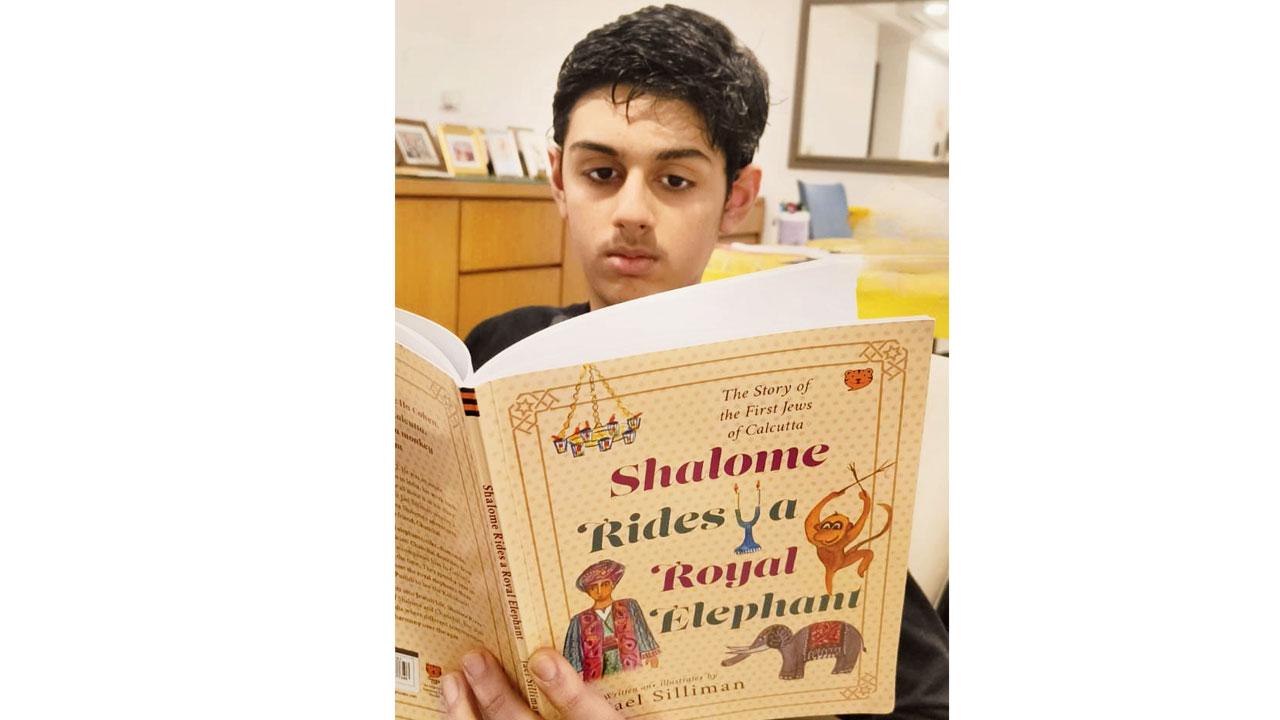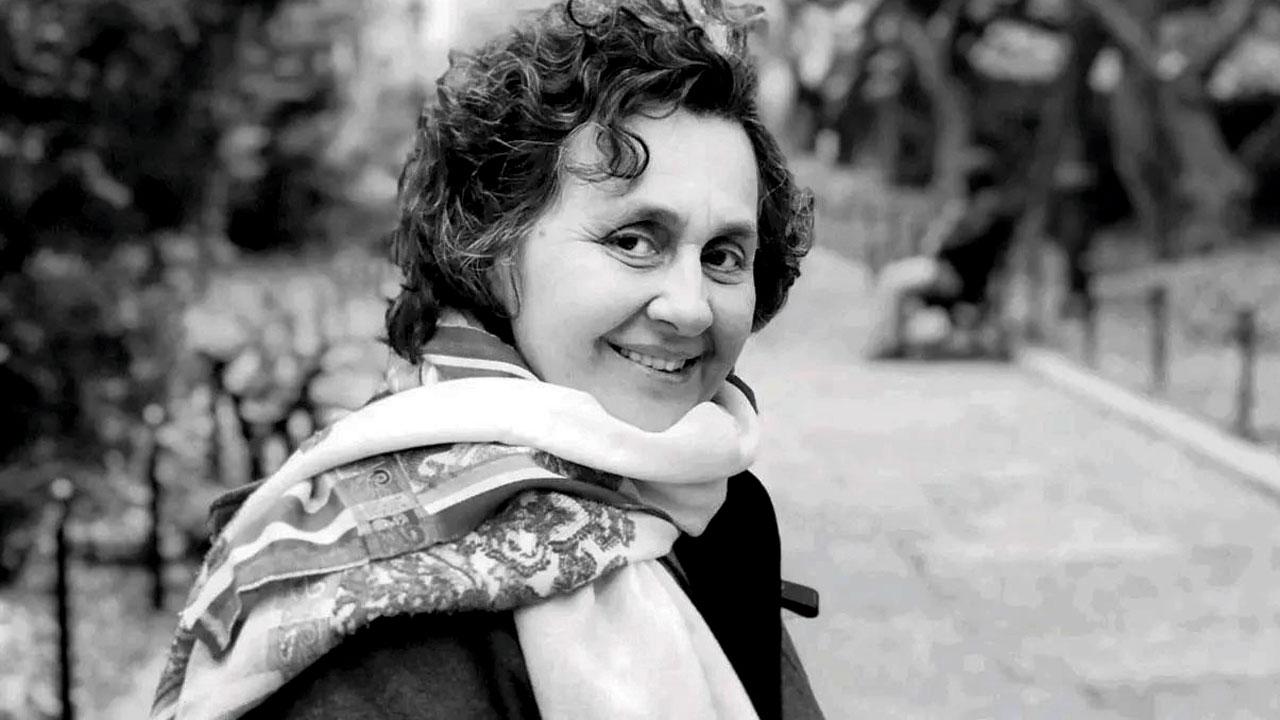A young reader reviews a beautiful new children’s book that gives us an insight into the life of the earliest Jews who arrived in the historic city

An illustration by Silliman features Chanchal the monkey
In her new children’s book, Shalome Rides a Royal Elephant (Speaking Tiger), Baghdadi Jewish writer Jael Silliman stitches a fascinating history of the first Jews who arrived in Calcutta in the late 18th century. The book traces the journey of Silliman’s ancestor Shalome Aaron Obadiah Ha Cohen, who travelled to India from Syria by ship in search of new opportunities. However, what draws a reader in instantly is that it is narrated through the eyes of Shalome’s pet monkey, Chanchal.
ADVERTISEMENT
When 14-year-old Aryaman Pathania, a voracious reader from Bombay International School, read the book, Chanchal’s colourful narration was the first thing that struck him. “The fact that the entirety of the book was narrated through Chanchal gave it an unbiased perspective, rather than if it were narrated by Shalome. It also gives the story a humourous tone,” admits Aryaman. Silliman teases the readers by throwing in fun terms like monkspective, monkpals, monkeylicious, and sounds like “tick tick tick and a lick”.

Aryaman Pathania reads the book
For Aryaman, who has enjoyed reading ever since he learnt how to hold a book, such stories seem rare in children’s literature and, as a result, in a child’s library. “I have never come across a children’s book, which has uncovered topics such as the vast cultures present in India,” he shares. He also notices that the book not only takes the readers through the history of a Jewish community in India, but also gives us a peek “into the cultures of the Dutch, the English, Arabs, Greeks, and Persians” and their traces and connections found within the country.
The illustrations created by Silliman catch Aryaman’s sharp eye but not just because they act as a visual aid to the narration. “They also let us compare modern-day India with the India from 1700s to 1800. They are very well detailed.” When we ask him if he thinks children his age would be interested in such a book, he articulates wisely, “Perhaps, it may not be their first choice,” considering how fantasy and mystery are some of the most exciting genres at this age, “But if they were to pick it up out of curiosity or boredom, they might find themselves pleasantly surprised. The book, at face value, is written for children but if one were to explore the history further, they might find themselves acing their next history paper,” he adds, recommending it, in addition to readers his age, to “all history and culture enthusiasts.”
From the author

Jael Silliman
Why did you decide to write a book about your ancestors for children?
A friend suggested I write a book for children on the Calcutta Jewish story. I immediately thought of the diary of my ancestor, Shalome Obadiah ha Cohen, the first Jewish settler of Calcutta. His diary written in Judaeo Arabic (1794-1836) included many colourful facts as he was a court jeweller to many princes of India. He had the honour of being allowed to ride the royal elephant with Nawab Ghazi-ud-din Haidar of Lucknow. I thought I could bring Shalome’s diary to life and make it into a splendid tale. Writing it for children allowed me to play with colour and add fantasy to the story. I have a four-year-old grandson, Vivaan, and we read stories, act them out, and make them up too. This made me feel I could talk with other children as well and hold their attention.
Why did you choose a monkey to be the narrator to tell this historic chronicle?
As I was writing for children, I felt that introducing an animal narrator would be interesting. Monkeys are clever, playful, cheeky and curious. Chanchal, the monkey, could accompany Shalome wherever he went. Throughout the story, Chanchal pokes fun at odd human ways and reminds us that animals are not that different from us, and should be treated with love and respect. Monkeys are human in so many ways too. The narrator brings a “monk-spective” to the story. I wanted the book to be enjoyed by adults and children. It is historically accurate; the book references significant leaders Shalome met like Maharaja Ranjit Singh as well as William Bentinck, the first Governor General of India, and highlights Baghdadi Jewish culture and values.
How did you seamlessly weave art into the storyline?
I first wrote the story. Then, I painted pictures to illustrate the story and the characters. I use bright colours, [which is my painting style], and wanted the illustrations to provide more details and texture to the tale. As the story takes place in the first half of the 18th century I was able to paint “monk-ificent” scenes — sailing ships and decorated elephants, colourful robes and men with turbans and, since many parts of Calcutta were still jungle, a painting with tigers and monkeys in a jungle setting.
How did you ensure the tonality didn’t get overwhelming?
It was a subconscious decision. I love telling stories. Chanchal, the monkey, talks to other animals and this story includes their reflections on people. The elephants in the stable whom Chanchal goes to visit explain: “There are many rules of who could not ride a royal elephant. He did not like the heavy seat that was placed on his back where many people were seated. It chafed and hurt. He told me blood-curdling tales of how, in battle he was pierced and fired at, by enemy armies.” I also use a lot of sounds — like the whirring of Chanchal’s brain — “tik tik tik” and when her brain whizzes so fast the “tick tick tick and a lick” introduces momentum and speed.
Shalome rides a royal elephant
AGE GROUP: 9+ years
TYPE: Children’s fiction
PRICE: Rs 294
RATING: 3/4
Available at all leading bookstores and e-stores
By Fiona Fernandez
 Subscribe today by clicking the link and stay updated with the latest news!" Click here!
Subscribe today by clicking the link and stay updated with the latest news!" Click here!







